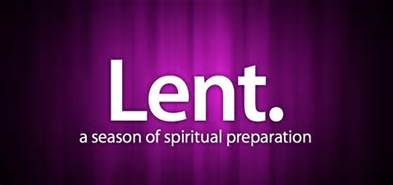
The Apostle Paul, writing in his second letter to the Church in Corinth, quotes from Isaiah[1] When he writes, “At an acceptable time I have listened to you, and on a day of salvation I have helped you.”[2]
In quoting this Scripture, he reminds his fellow apostles and those who have been appointed ministers at Corinth that this is the time to preach the Good News of Jesus Christ. In quoting Isaiah he implies, there will be a time when no one will or can preach the Good News. In other words, the Good News and preaching Christ is urgent.
The Good News of God in Jesus is reconciliation. The promise of the Scriptures is God seeks reconciliation. Isaiah wrote of Israel’s ultimate triumph through faithfulness. This is Paul’s urgent message. God seeks reconciliation in the world–both Jew and Gentile.
Paul’s message is urgent. Paul fears a time when humanity will no longer listen or when humanity will be in a place where no one can hear the message of God’s willingness or wish for reconciliation. By its own willfulness, humanity’s openness to God will be closed off. Thus, the time of God’s favor is not limitless, and Paul urges everyone who has accepted the message of Christ’s reconciling act to be active in preaching and practicing the Good News of Christ.
As a man in Holy Orders of the Episcopal Church, an extension and living continuation of the apostolic ministry ordained by Christ, my task to preach and live a ministry of reconciliation. When Paul writes, “See, now is the acceptable time; see, now is the day of salvation!” He knows those to whom he is writing accepted Christ as the Savior; that is they are saved having committed themselves to Christ in their baptisms. Paul wants it understood among the ministers at Corinth that the acceptable time means the day of salvation is here and now. Therefore, go out now and preach that truth to the world. Paul admonishes the Corinthians because they believe they have what they need for their salvation. However, for the baptized that is not enough. Followers of Christ cannot be idle and self-content. If they do not act to make the saving reconciliation available to everyone, there will come a time when they cannot offer that gift of reconciliation to anyone.
A few days ago, I was asked what I was planning to give up for Lent. That question never makes me happy. Giving up something for Lent to me is often a meaningless exercise. A true sacrificial fast is not eating for a full day or days. Unless you are physically well enough to do so, fasting is not recommended. So, if fasting is just for the hardy, we can give up some pleasure and go on with things as usual. However, we should not trivialize Lent by only giving up some small thing. What then should we do?
Paul tells us what we are to do in his Second Letter to the Corinthians. He instructs, be conscious of time, be aware of life, and use that time to live as Christ’s ambassadors.
Christians are people who have recognized that God has reconciled with the world through the one who knew no sin. The Christian task, therefore, is to live as if Christ’s gift of himself on the cross matters. We, like Paul, are ambassadors for Christ. The way we live, our willingness to meet the challenges of ignorance, poverty, and hatred are signs of our ambassadorships.
through the one who knew no sin. The Christian task, therefore, is to live as if Christ’s gift of himself on the cross matters. We, like Paul, are ambassadors for Christ. The way we live, our willingness to meet the challenges of ignorance, poverty, and hatred are signs of our ambassadorships.
Christians, during the days of Lent, are to use the time to give something to make the world a better place. Christians must use the time of Lent to demonstrate what unconditional love is; challenge hatred, and workd to make reconciliation a reality to those who need it the most.
Christians are called to live a Holy Lent more than they are called to observe the season.
[1] 49:8. “Thus says the LORD: In a time of favor I have answered you, on a day of salvation I have helped you…” The New Revised Standard Version of the Holy Bible.
[2] 2 Corinthians 6:2.